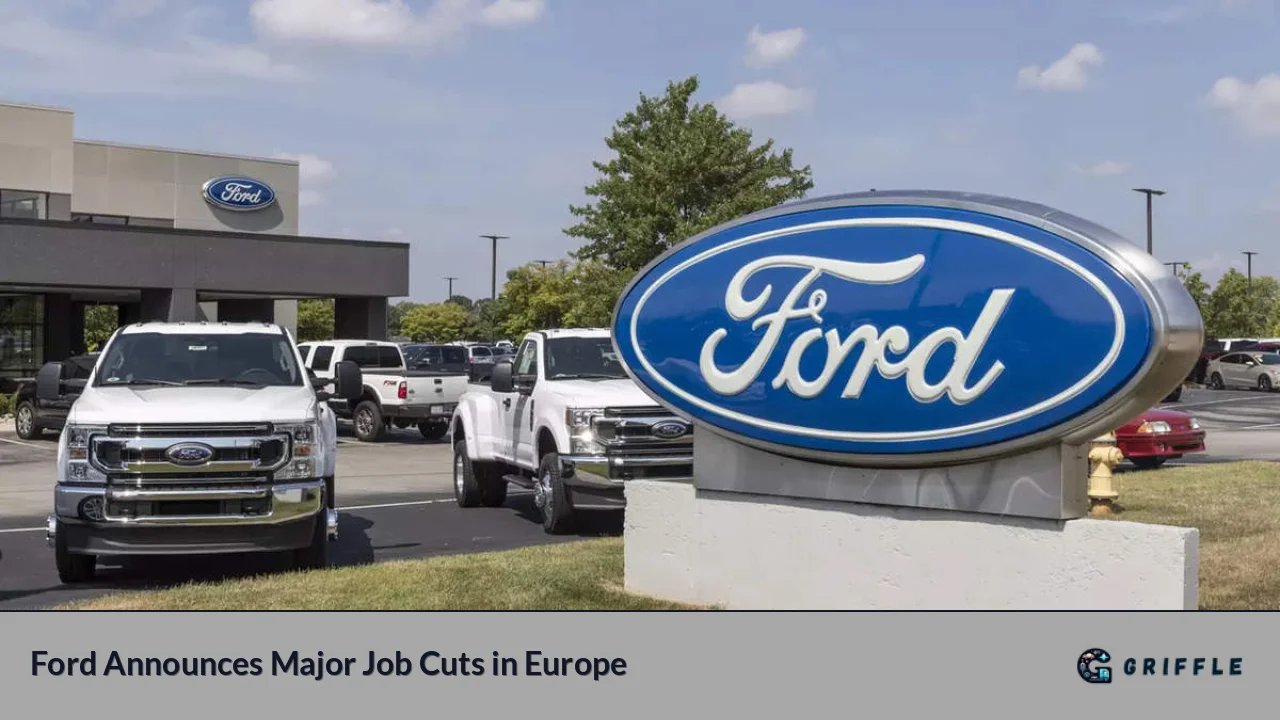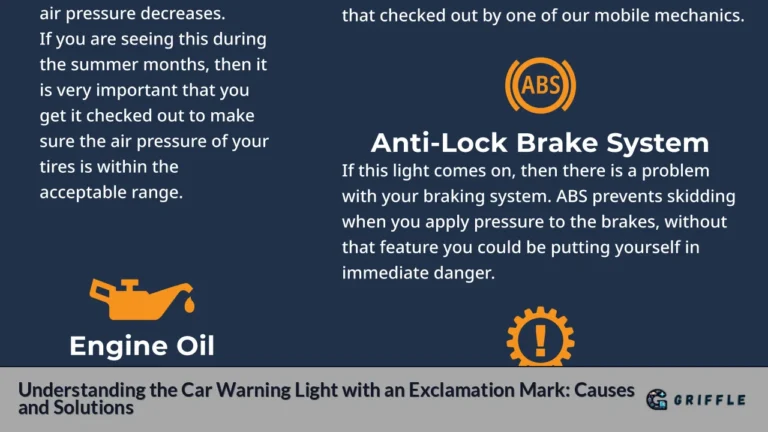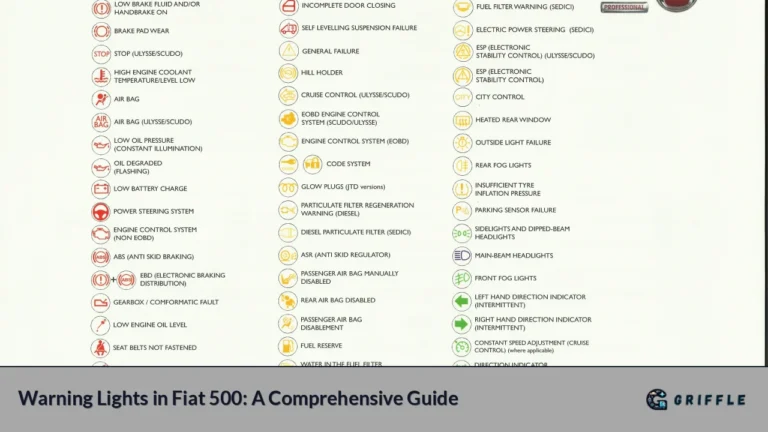In a significant move that has sent ripples through the automotive industry, Ford Motor Company has unveiled plans to cut approximately 4,000 jobs across its European operations over the next three years. This decision, announced on November 20, 2024, comes as the American automaker grapples with slowing demand for electric vehicles and intensifying competition from Chinese manufacturers. The restructuring will affect about 14% of Ford's workforce in the region, primarily impacting operations in Germany and the United Kingdom.
| Key Details | Impact |
|---|---|
| Job Cuts | ~4,000 positions |
| Timeframe | By end of 2027 |
| Regions Affected | Primarily Germany and UK |
| Percentage of European Workforce | ~14% |
| Main Reasons | Slowing EV demand, Chinese competition |
The Driving Forces Behind Ford's Decision
Ford's announcement comes at a crucial juncture for the global automotive industry, particularly in Europe. The sector is facing unprecedented challenges, including fierce competition, regulatory pressures, and economic hurdles. These factors have converged to create a perfect storm for traditional automakers like Ford, forcing them to make difficult decisions to maintain their competitive edge.

Several key factors have contributed to Ford's decision to implement these sweeping job cuts:
- Slowing Electric Vehicle Demand: Despite the initial hype surrounding electric vehicles (EVs), consumer adoption has not met expectations. Ford has been compelled to reduce prices for its EVs, which have been significantly unprofitable, and it has lowered its EV production goals. This slowdown has put pressure on the company's bottom line and forced a reevaluation of its workforce needs.
- Chinese Competition: The rise of Chinese EV manufacturers has posed a significant threat to Western automakers. These companies have been capturing market share in what has historically been the largest passenger car market globally, forcing companies like Ford to reassess their strategies and cost structures.
- Economic Challenges: The automotive sector is grappling with high energy expenses and various economic obstacles. These factors have contributed to profit declines for major brands across the industry, not just Ford.
- Regulatory Pressures: Stringent emissions regulations in Europe have pushed automakers to invest heavily in electric vehicle technology. However, the mismatch between regulatory expectations and consumer demand has created a challenging environment for companies like Ford.
Dave Johnston, Ford's European vice president for transformation and partnerships, emphasized the necessity of these actions, stating:
"We are taking difficult but necessary actions to create a leaner, more competitive cost structure for Ford in Europe. Nothing is off the table. We will work closely with our social partners to ensure we minimize the impact on our employees."[1]
This statement underscores the gravity of the situation and Ford's commitment to navigating these challenging times.
The Scope and Impact of the Job Cuts
The announced job cuts will have a significant impact on Ford's European operations, particularly in Germany and the United Kingdom. In the UK alone, Ford plans to reduce its workforce by 800 positions over the next three years, representing about 15% of its 5,300 employees in the country.

The breakdown of the job cuts reveals the following:
- Germany: Expected to bear the brunt of the cuts, with a significant number of positions to be eliminated.
- United Kingdom: 800 jobs to be cut, primarily in administrative and product development areas.
- Other European countries: The remaining cuts will be distributed across Ford's other European operations.
It's important to note that Ford has expressed a preference for achieving these reductions through voluntary redundancy where possible. Lisa Brankin, managing director of Ford in Britain and Ireland, stated:
"This announcement is not one that anyone desires to make, and I recognize the significant effect it will have on our staff. It's not the type of news anyone wants to receive at any moment. Therefore, our goal is to implement this primarily through voluntary redundancy."[2]
Impact on Specific Facilities
While the job cuts will be felt across Ford's European operations, some facilities have been specifically mentioned:
- Protected Facilities:
- Dagenham plant in Essex (produces diesel engines for vans)
- Halewood facility (manufactures gearboxes and is nearing completion of a new site for electric vehicle motors)
- Transport operations division in Southampton
- Potentially Affected Locations:
- Research and development center in Dunton, Essex (also serves as Ford's UK headquarters)
- Parts distribution center in Daventry
- Four other unspecified locations in the UK
Historical Context
This is not the first time Ford has implemented significant job cuts in its European operations. In March 2023, the company announced the elimination of 1,300 jobs, which accounted for 20% of its workforce, primarily at the Dunton location. This latest round of cuts indicates a continuing trend of restructuring and cost-cutting measures in response to the challenging market conditions.
The Broader Industry Context
Ford's decision to cut jobs is not occurring in isolation. The entire automotive industry is facing similar challenges, with several major players implementing their own restructuring plans:
- Volkswagen: The German automaker has revealed plans to reduce employee salaries by 10% to protect jobs and secure the company's future. Volkswagen is also considering closing at least three factories in Germany and laying off tens of thousands of workers as it struggles with a sluggish automotive market in Europe and a significant loss of market share in China.
- Mercedes-Benz and BMW: Both companies have reported significant profit declines this year, indicating the industry-wide nature of these challenges.
- Other European Manufacturers: Many are grappling with similar issues related to EV adoption, competition from Chinese manufacturers, and regulatory pressures.
The Electric Vehicle Conundrum
One of the key factors driving these industry-wide challenges is the complex landscape of electric vehicle adoption. While governments and regulators are pushing for rapid electrification, consumer demand has not kept pace with expectations. This mismatch has created several issues:
- Regulatory Pressure: In the UK, for example, new regulations mandate that at least 22% of cars sold must be classified as zero-emission. This quota is set to increase annually, reaching 80% by 2030.
- Consumer Hesitation: Despite incentives and marketing efforts, many consumers remain hesitant to switch to electric vehicles due to concerns about range, charging infrastructure, and initial costs.
- Profitability Challenges: Automakers are finding it difficult to make their electric vehicle operations profitable, often resorting to unsustainable discounts to meet regulatory quotas.
John Lawler, Ford's chief financial officer, recently addressed these challenges in a letter to the German government, urging for measures to enhance market conditions for automakers:
"What we need in Europe and Germany is a clear and decisive policy framework to promote e-mobility, including public investment in charging infrastructure, substantial incentives for consumers to transition to electric vehicles, enhanced cost competitiveness for manufacturers, and increased flexibility in achieving CO2 compliance standards."
This statement highlights the complex interplay between regulatory requirements, consumer demand, and automaker capabilities that is shaping the industry's future.
The Road Ahead for Ford and the Automotive Industry
As Ford implements these significant job cuts, the company and the broader automotive industry face a challenging road ahead. Several key factors will shape the future:
1. Adapting to Changing Consumer Preferences
Ford and other automakers will need to carefully balance their product offerings to meet both regulatory requirements and consumer demand. This may involve:
- Continuing to invest in electric vehicle technology while also maintaining a portfolio of traditional combustion engine vehicles
- Developing more affordable electric vehicle options to increase adoption
- Improving battery technology to address range anxiety concerns
2. Navigating Regulatory Landscapes
The automotive industry will need to work closely with governments and regulators to create realistic and achievable targets for electrification. This may involve:
- Advocating for more flexible timelines for EV adoption quotas
- Pushing for increased government investment in charging infrastructure
- Seeking additional incentives to make EVs more attractive to consumers
3. Addressing Competition from Chinese Manufacturers
Western automakers like Ford will need to develop strategies to compete with the rising tide of Chinese EV manufacturers. This could include:
- Focusing on areas where they have a competitive advantage, such as brand recognition and customer loyalty
- Investing in innovation to stay ahead of the technology curve
- Exploring partnerships or joint ventures to leverage strengths and mitigate weaknesses
4. Workforce Transformation
As the industry shifts towards electrification and increased automation, companies will need to:
- Retrain existing employees to work with new technologies
- Attract new talent with skills in areas like software development and battery technology
- Manage the social and economic impacts of job cuts and factory closures
5. Supply Chain Resilience
Recent global events have highlighted the importance of robust and flexible supply chains. Automakers will need to:
- Diversify their supplier base to reduce reliance on any single region or company
- Invest in technologies that allow for more agile manufacturing processes
- Develop strategies to secure critical materials for EV batteries
Conclusion: A Turning Point for Ford and the Automotive Industry
Ford's announcement of 4,000 job cuts in Europe marks a significant moment not just for the company, but for the entire automotive industry. It underscores the profound challenges facing traditional automakers as they navigate the transition to electric vehicles, intense competition from new players, and evolving regulatory landscapes.
While these job cuts will undoubtedly have a significant impact on the affected employees and communities, they also represent Ford's attempt to position itself for a sustainable future in a rapidly changing industry. The success of this strategy will depend on the company's ability to balance cost-cutting measures with continued innovation and adaptation to new market realities.
For the broader automotive industry, Ford's actions serve as a stark reminder of the need for agility and forward-thinking strategies. As the sector continues to evolve, companies that can successfully navigate the complex interplay of technology, regulation, and consumer preferences will be best positioned to thrive in the years to come.
Ultimately, the road ahead for Ford and its peers will be challenging, but it also presents opportunities for those who can successfully adapt to the new realities of the automotive world. The industry stands at a crossroads, and the decisions made today will shape its future for decades to come.
FAQs
- How many jobs is Ford cutting in Europe?
Ford plans to cut approximately 4,000 jobs across its European operations by the end of 2027. - Which countries will be most affected by Ford's job cuts?
Germany and the United Kingdom are expected to bear the brunt of the job cuts. - Why is Ford implementing these job cuts?
The cuts are due to slowing electric vehicle demand, increased competition from Chinese manufacturers, and economic challenges. - Will Ford's manufacturing facilities be affected by these cuts?
Ford's manufacturing facilities in Dagenham, Halewood, and Southampton are protected from these job cuts. - How does this decision compare to other automakers' actions?
Other major automakers like Volkswagen are also implementing cost-cutting measures and considering job cuts due to similar industry challenges.






